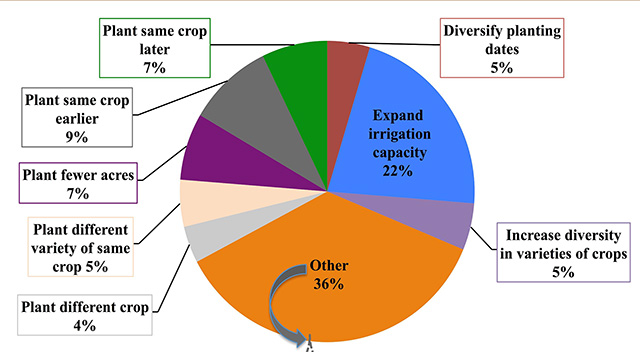Cornell Chronicle [2017-04-06]:
A survey of more than 200 New York farmers late last summer – during the worst drought in two generations – found that more than 70 percent of unirrigated, rain-fed field crops and pasture acreage had losses between 30 and 90 percent, according to a new report published by the Cornell Institute for Climate Smart Solutions.
For farmers all over the state, arid conditions were so pervasive that fruit and vegetable growers who had capacity to irrigate lacked water to keep up with the drought. Irrigated farms estimated crop losses of up to 35 percent, said Shannan Sweet, NatureNet postdoctoral science fellow with Cornell’s Atkinson Center for a Sustainable Future and The Nature Conservancy.
“New York’s farmers have asked if they should expect more dry summers like the one we had in 2016. The answer is: We don’t know,” said Sweet, also a postdoctoral associate in the Horticulture Section of the School of Integrative Plant Science, working with David Wolfe, professor of horticulture. “Climate scientists forecast that the number of frost-free days will continue to increase and summers will be getting warmer, increasing water demand for crops.”

Read full report: Anatomy of a Rare Drought: Insights from New York Field Crop Farmers


